Battle for Lebanon’s soul: As US plays dirty tricks, resistance stands unshaken
By Julia Kassem
The brutality of the Israeli war machine reached new heights when a Hezbollah resistance fighter, Abbas Haidar, and his three daughters were murdered in cold blood on Friday.
Their home in Tayr Harfa, near the Lebanon-Palestinian border, was rigged with explosives.
Haidar was no ordinary fighter. A devout and courageous Hezbollah soldier, he played a key role in the legendary ambushes against Israeli occupation soldiers in Chamaa, south Lebanon, which contributed to the humiliating defeat of the Zionist occupation.
Hours after his assassination, an unsettling spectacle unfolded. US ambassador Dorothy Shea and Trump’s ultra-Zionist deputy envoy for Middle East Morgan Ortagus arrived in southern Lebanon, inspecting locations near Tayr Harfa and Chamaa.
Their intentions were unclear, but the timing was impossible to ignore. Haidar had been targeted in a vicious act of revenge, and now US officials were surveying the scene.
Coincidence? Hardly. There is always a method to the madness.
Washington’s fingerprints have been all over the events unfolding not just in Lebanon but across the region. Joe Biden’s January 2024 meeting with Israeli regime leadership laid bare the American goals in Gaza: replacing Hamas with a docile, Palestinian Authority-style leadership.
Now, the brutal home raids and assassinations once associated with the PA’s suppression of resistance in the occupied West Bank are being tested in Lebanon.
The infiltration of PA-aligned spies into Gaza, coordinated by the Authority’s intelligence chief, was a blatant US-backed scheme to subdue Palestinian resistance.
Hamas, however, crushed the attempt, maintaining its grip on the territory despite relentless Israeli genocide, targeted assassinations, and the annihilation of Gaza’s infrastructure.
The playbook is the same. On January 5, Palestinian resistance forces confiscated an RPG used by the Palestinian Authority in blowing up homes in Jenin – one of many examples of the PA’s willingness to act as Israel’s enforcer on the ground.
PA-backed gunmen storm the homes, neighborhoods, and safe havens of resistance fighters, doing Israel’s dirty work on the ground while the occupation unleashes destruction from the air.
And when it comes to executions, the US has made its position crystal clear. Ortagus’s mission aligns perfectly with Israel’s unrelenting campaign of assassinations against Hezbollah members and their families – even after supposed ceasefires.
A Hezbollah official in Machghara, a village in West Bekaa, was gunned down outside his home.
As history shows, Israel doesn’t act alone. The question isn’t if the US will escalate its dirty tricks in Lebanon, but when and how much carnage it is willing to endorse in the process.
Lebanon’s Parliament rejects the US envoy's statements regarding Hezbollah's role in the Lebanese government, emphasizing that it is a domestic issue.
— Press TV 🔻 (@PressTV) February 9, 2025
Follow Press TV on Telegram: https://t.co/boCY50qfi9 pic.twitter.com/R74fKi1qgQ
It’s no accident that Benjamin Netanyahu chose a Golden Pager as his gift to Trump during his recent visit to the US, mounted on a cross-section of an ancient olive tree trunk – a symbol of triumph over Lebanon’s natural and social fabric.
This wasn’t just any gift; it was a gold-plated gloat, a message embedded in the desecration of Lebanon’s most sacred icon. The olive tree, characteristic of Lebanon’s south, was deliberately chosen instead of the more iconic Cedar tree of the north, perhaps a passive reminder from Netanyahu to Trump of the role the US president is expected to play.
Meanwhile, as tensions in the region reached new heights, Trump’s new Middle East envoy, Ortagus, who outdoes her predecessor, former Israeli military member Hochstein, in her rabid Zionism, delivered an inflammatory message from Baabda Palace.
During a press conference, she claimed that Israel defeated Hezbollah, and they are grateful. She further hoped for an end to Hezbollah’s influence in Lebanon and said the movement must not be part of the new government.
Ortagus had the audacity to call for a Lebanese government devoid of the very duo, alongside their allies, that has held a parliamentary majority for years.
These figures, backed by the Shia community, remain the political bedrock of Lebanon. In reality, the US has long manipulated Lebanon’s political landscape, pressuring the government to ensure that no Hezbollah or Amal members occupy key ministry portfolios.
As the battlefield shifted from Palestine to Lebanon, the US pursued its long-standing goal of removing Hezbollah from both the political and military arenas.
With the rogue Israeli campaign targeting Hezbollah leaders, the US ambassador to Lebanon ominously told the country to “prepare for a post-Hezbollah era.”
The words echoed Condoleezza Rice’s hollow promises of a “New Middle East,” a vision of dominance and subjugation that Ortagus now appears determined to realize.
Ortagus’s words, insulting and provocative as they were, seemed to be a thinly veiled call for war. And in this charged moment, she didn’t stop at rhetoric.
As she stood in Baabda Palace, flashing her Star of David ring during a handshake photo with the Lebanese president, her very presence served as a reminder to the Lebanese people that the imposition of US-Israeli settler-colonial will be coming with full force.
For decades, USAID and Ford Foundation-funded initiatives aimed at socially engineering Hezbollah out of Lebanese society have faltered. Despite these efforts, Hezbollah’s strong ideological foundation, rooted in political education and the cultural strength of the Shia community, has proven resilient.
Iran's Foreign Minister Abbas Araghchi emphasized that Hezbollah remains resilient and influential in Lebanon, despite Israel’s aggression and heinous crimes.
— Press TV 🔻 (@PressTV) February 5, 2025
Follow Press TV on Telegram: https://t.co/GKZwI4ehqL pic.twitter.com/HStyE0PQn1
Through the teachings of martyred leader Sayyed Hassan Nasrallah, Hezbollah has fostered a deep sense of resistance, one that has withstood even the most intense US ideological conditioning campaigns.
The battle for Lebanon’s soul is far from over, and as the US pushes forward with its aggressive agenda, the Lebanese people’s resolve grows ever stronger.
It was evident again and election results were indeed a slap in the face to Ortagus with Hezbollah and Amal both winning 5 seats in the new government - including the ministry of finance.
Hezbollah earned two of these positions, including the ministries of labor and displaced respectively.
Where the US and Israel sought to engineer a crisis in resistance leadership, they found themselves entangled in a crisis of their own. While the occupation sensed its diminishing grip on borders, it now strives to destabilize Lebanon from both the north and the south, aiming to overwhelm Hezbollah once Israel’s self-proclaimed “ceasefire” extension expires.
This ceasefire, already violated a thousand times by Israel, is slowly eroding the resistance’s patience, a temporary pause in hostilities meant to reposition attacks on Hezbollah from every angle.
What began with the fall of Syria to Western-backed Takfiri militants has evolved into a deadly escalation, with the clock ticking toward Israel’s February 18 deadline.
These militants, aligned with the US and Israel’s agenda, now stir chaos by clashing with Lebanese clans in Baalbeck and attempting border infiltrations in the northeast, threatening to reintroduce violence into Lebanon.
Meanwhile, the Lebanese army has been explicitly told to avoid interference in these US-led schemes, leaving the resistance to fend for itself as it faces mounting pressure on all sides.
To the south, Israel’s efforts to reclaim territory south of the Litani River are increasingly evident. Booby-trapping homes of resistance fighters, planting surveillance devices, and imposing ‘security belts’ – all these are precursors to an expanded occupation.
Since the ceasefire was put into effect, Israel has violated it nearly a thousand times across Lebanon, using this so-called "calm" period to terrorize Southern and Bekaa communities.
This is more than a political maneuver; it’s an all-out assault on the very heart of the resistance.
Attacking resistance members and their families in such brutal ways is a final, desperate attempt to wipe out the organization, targeting each individual and their loved ones in a bid to dismantle the resistance entirely.
As Israel and the US tighten their grip, future attacks will not stop at bombs and bullets. The battle is shifting into the digital sphere, as tech giants like Trump, Musk, and Big Tech consolidate power to further weaponize technology against resistance societies in both Palestine and Lebanon.
What began as a form of psychological warfare is now escalating into full-fledged social engineering, with the tech community’s sudden pivot from liberal discourse to neo-conservative rhetoric signaling a broader shift in strategy – one that seeks to achieve goals through coercion, now that “consent” has proven unattainable.
Google, for example, quietly backed away from its commitment to prevent its technology from being used as an instrument of warfare and surveillance.
Gaza’s AI-powered genocide marked the loudest signal of Big Tech’s transformation from a tool of soft warfare into a weapon of hot war. The US, too, has been openly and brazenly tearing up international agreements and dismantling the facade of ‘rule of law.’
The previous US administration’s unconditional funding of genocide in Gaza has further exposed the hollowness of their claims to uphold human rights.
Now, with the masks and gloves fully off, the stage is set for more attacks on phones, homes, and lives under the leadership of a president who ran on promises of ‘peace’ while accepting millions from notorious war profiteers like Sheldon Adelson.
As the US and Israel ramp up their assault, the resistance, rooted deeply in the will of the Lebanese and Palestinian people, stands as a bulwark against their malevolent ambitions.
But the cost of this fight will be steep, and the consequences of underestimating the resilience of those who stand against them will be felt for years to come.
Julia Kassem is a Beirut-based writer and commentator, whose work appears in Press TV, Al-Akhbar, and Al-Mayadeen English, among others.
(The views expressed in this article do not necessarily reflect those of Press TV.)
VIDEO | Tehran sky illuminates over
Maduro’s abduction: China says US cannot act as world’s ‘police’ or ‘judge’
VIDEO | Australians protest over US action in Venezuela
Cuba declares national mourning for 32 citizens killed in US raids on Venezuela
Iran: US must release kidnapped Venezuelan president
After US aggression against Venezuela, Mexico could be next: Report
Qalibaf: Protesters must be heard but foreign-linked agitators will be dealt with
VIDEO | German government refuses to condemn US aggression against Venezuela



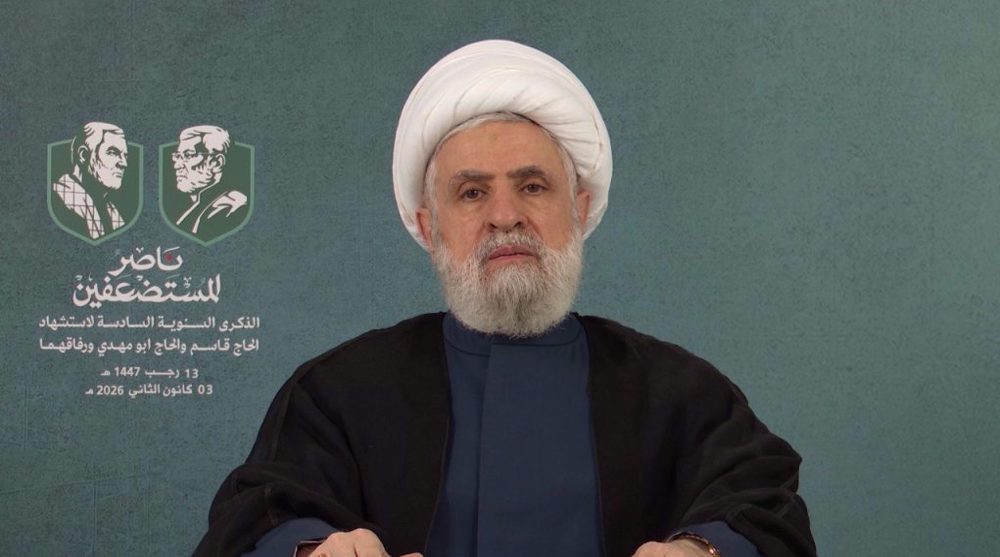
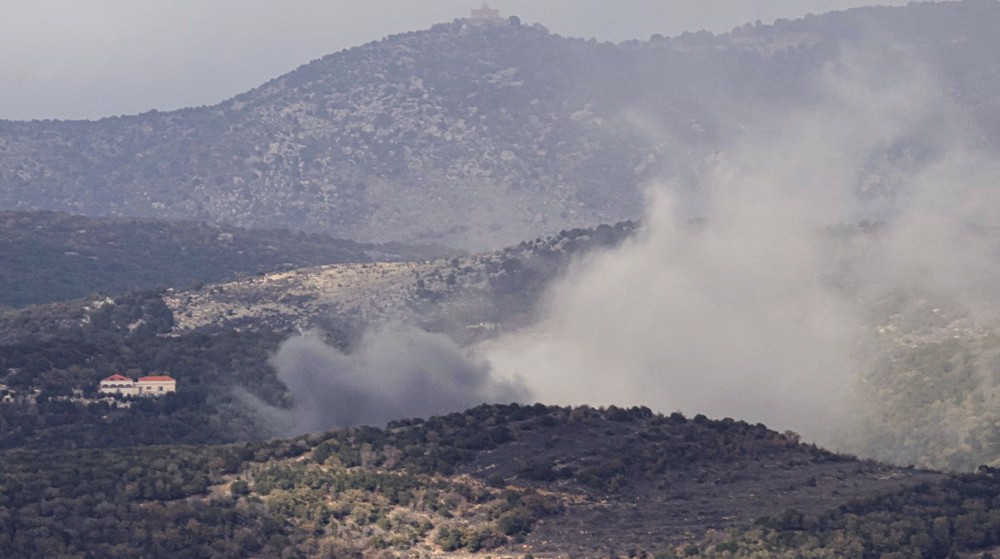
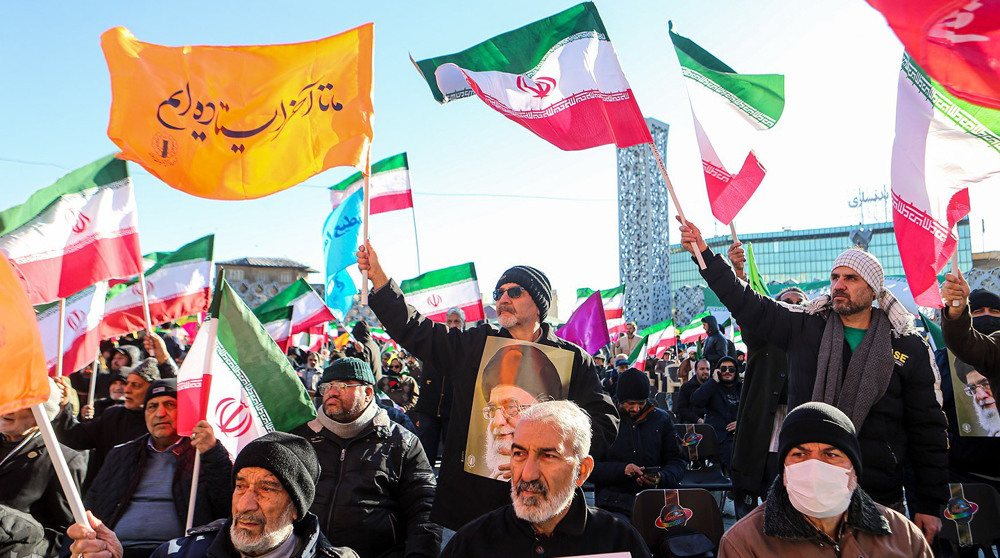



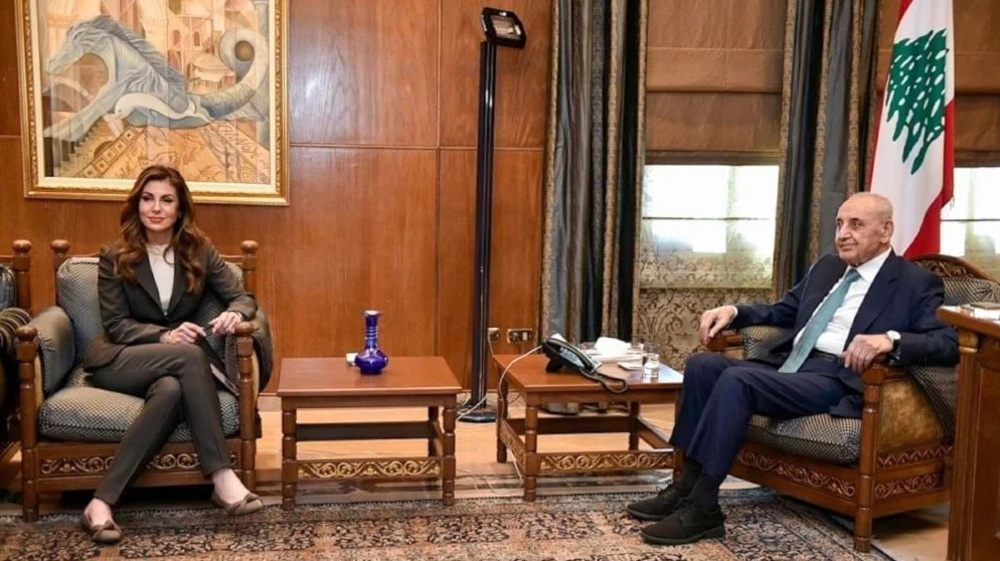
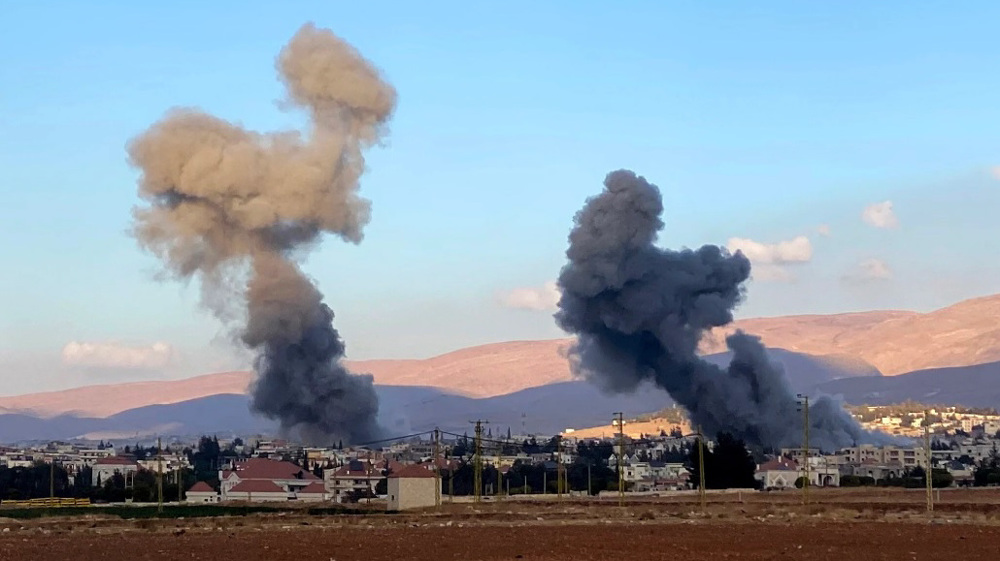
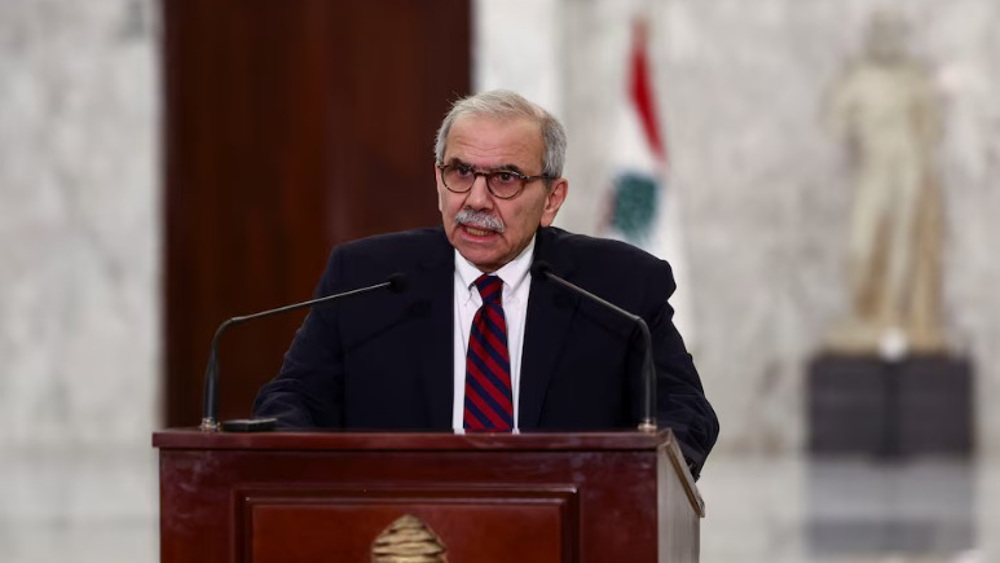
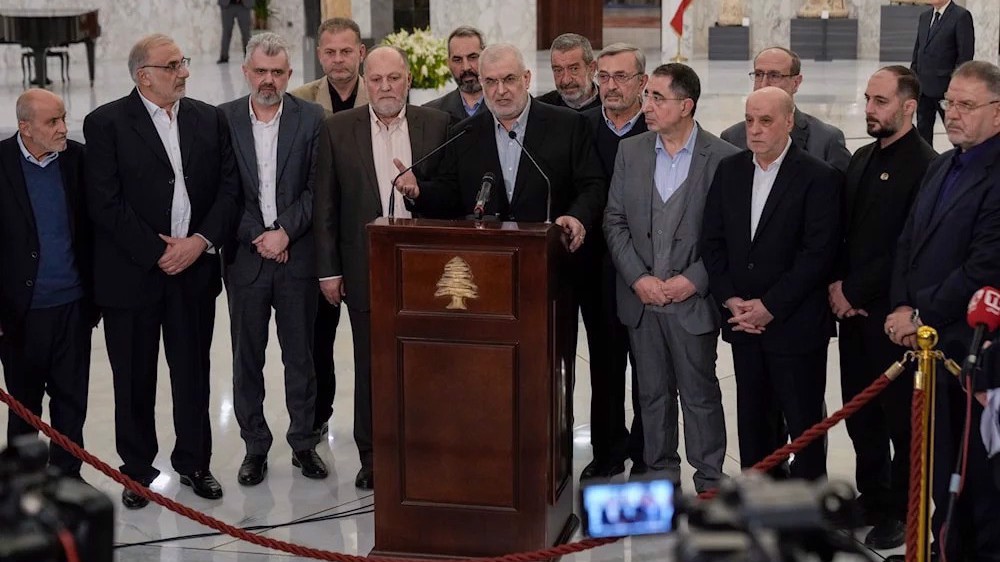
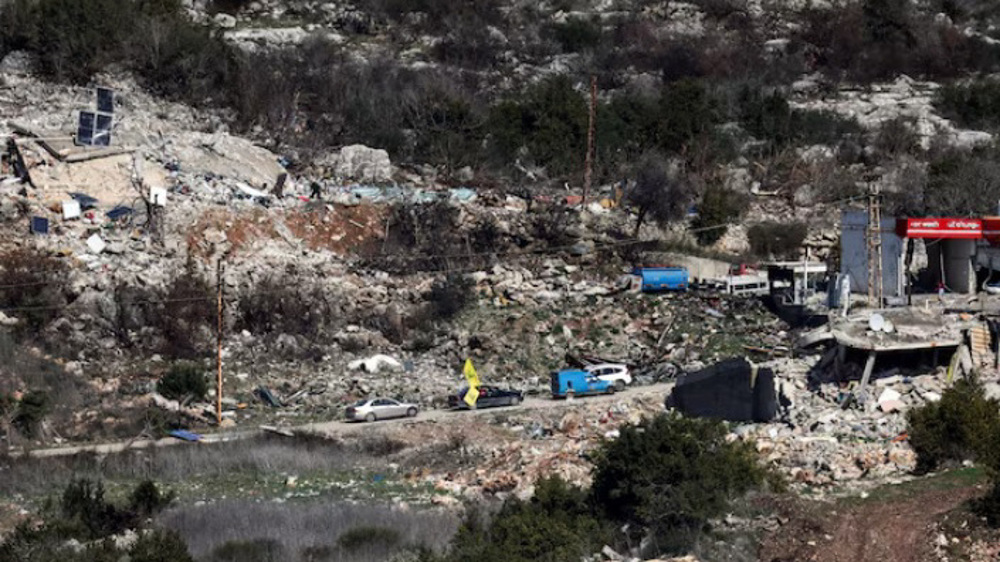

 This makes it easy to access the Press TV website
This makes it easy to access the Press TV website